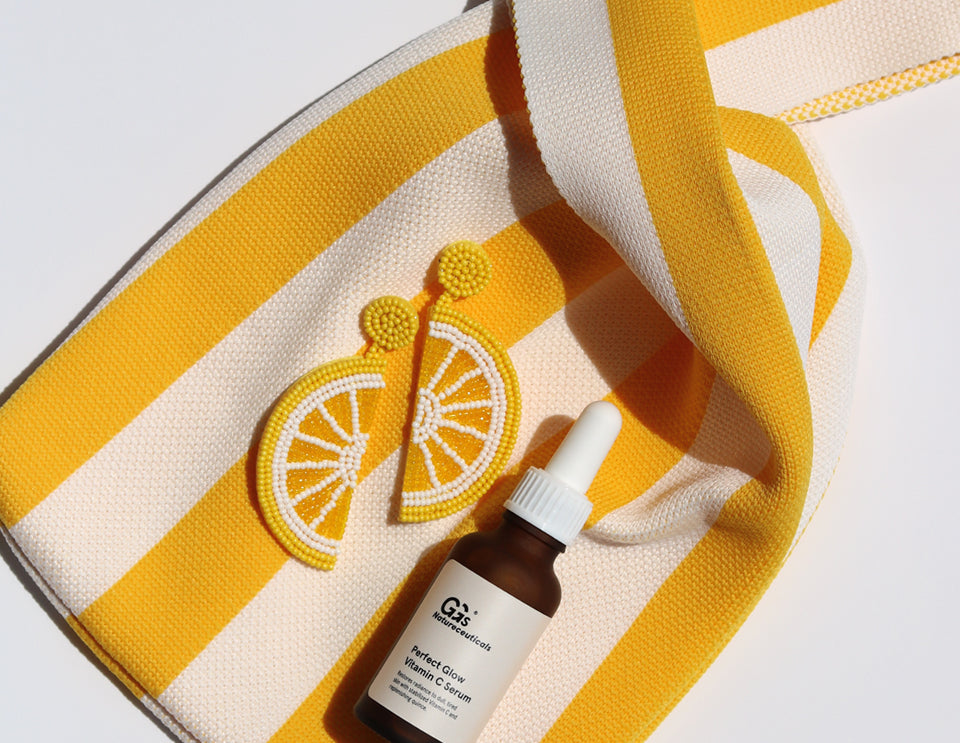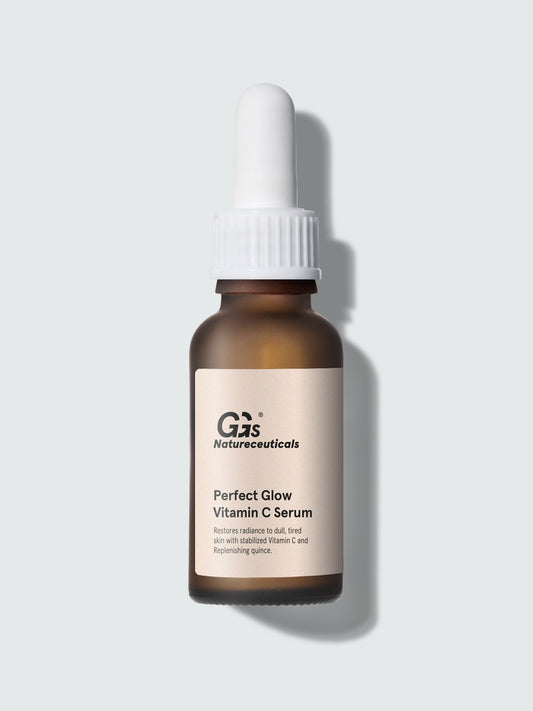Vitamin C is one of the most thoroughly researched ingredients in skincare. It protects against free radicals, supports collagen production, and can help reduce hyperpigmentation and uneven skin tone. Yet despite its strong scientific foundation, not every form of vitamin C can deliver these benefits reliably. What matters is not only what is used – but how.
Different forms – different results
Many formulations rely on pure L-ascorbic acid. While it is considered highly effective, it is also extremely unstable: exposure to light, oxygen, and moisture quickly leads to oxidation. As a result, the active ingredient can degrade shortly after opening – reducing its efficacy and potentially irritating the skin.
Another challenge: L-ascorbic acid requires a very low pH to remain active, which is often too harsh for sensitive skin – and may not be well tolerated over time.
Stable and skin-friendly: Ascorbyl Glucoside
Ascorbyl Glucoside is a well-tolerated, stable vitamin C derivative. It is enzymatically converted into active ascorbic acid within the skin, where it can exert its effects: antioxidant protection, collagen stimulation, and brightening.
At the same time, it remains stable in the formulation – even over extended periods – and can easily be integrated into a daily routine, morning and/or evening.
Efficacy depends on stability – and a well-balanced formulation
A vitamin C serum is most effective when it offers more than just a high concentration of the active. What truly matters is the overall formulation: a balanced pH, a well-designed delivery system, and synergistic ingredients – such as hydrating or anti-inflammatory components – can significantly enhance both efficacy and tolerance.
Thanks to its stability, Ascorbyl Glucoside can be combined with hyaluronic acid, botanical antioxidants, or calming plant extracts. This results in a formula that is suitable for sensitive skin and gentle enough for daily use.
For a more even, resilient complexion
Regular use of a well-formulated vitamin C serum s can visibly improve the skin’s appearance:
- Supports the skin’s natural collagen production, helping to strengthen its structure
- Protects against oxidative stress caused by UV exposure and environmental factors
- Helps reduce hyperpigmentation and uneven skin tone (e.g. after inflammation or sun exposure)
- Provides mild anti-inflammatory effects, especially in combination with moisturizers
- Promotes a more even-toned, radiant complexion
The most effective time to apply a vitamin C serum is in the morning – as part of your daytime routine, ideally paired with UV protection.
What to keep in mind when using vitamin C
Vitamin C should not be used in the same routine with highly acidic exfoliants (such as AHAs or BHAs). However, rinse-off cleansers that contain fruit acids – such as gel or foam cleansers – are not an issue, as they do not have a lasting effect on the skin after rinsing.
Why Ascorbyl Glucoside stands out
Ascorbyl Glucoside offers a modern solution for delivering vitamin C to the skin reliably and without irritation. It combines effectiveness with excellent skin compatibility and is suitable for long-term use – even for sensitive skin or minimalistic routines.
In advanced formulations, it can help strengthen the skin barrier, limit oxidative processes, and improve overall skin clarity – without the instability or irritation associated with harsher acids.
Who is it for?
- Dull or tired-looking skin
- First signs of skin aging
- bei ungleichmäßigem Teint oder Pigmentverschiebungen
- Uneven skin tone or pigmentation irregularities
- Suitable even for sensitive skin
Conclusion
Vitamin C has great potential – when formulated correctly. Ascorbyl Glucoside offers a smart approach: less irritation, more stability – and the potential to improve skin structure over time.



